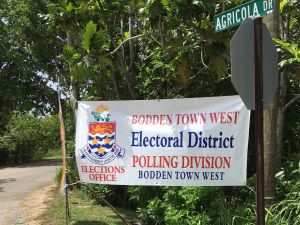🏛️ MPs reject proposed electoral boundary changes due to lack of public consultation
🗳️ Acting Premier André Ebanks highlights the need for greater public engagement and consideration of socioeconomic diversity

Acting Premier André Ebanks recently explained to MPs why they should reject the Electoral Boundary Commission’s 2023 report. The report recommended altering most of the constituency boundaries within the districts and renaming them with numbers or adding a new seat in Bodden Town. Ebanks pointed out several issues with the report, including the low level of public participation during the consultation process, lack of awareness about the proposals, and concerns that the commission had not given enough consideration to the socioeconomic diversity of seats. 🏘️
Ebanks also noted the short timeframe to implement the significant changes proposed and the need for wider consideration of the issues surrounding a modern, fit-for-purpose electoral landscape. He suggested a different approach to public engagement using social media and digital means. The Cabinet has already voted to launch another commission, which Ebanks indicated would take a very different approach. Opposition Leader Roy McTaggart supported rejecting the report, citing the late timing and potential for voter confusion. MPs then unanimously rejected any changes to their constituency boundaries for the next election. 🗳️
There are significant disparities in constituency sizes, with some far exceeding international recommendations. For example, West Bay Central has just 1,191 registered voters while West Bay South has 1,542. East End, the smallest constituency on Grand Cayman, has just 753 voters while its neighbouring constituency of Bodden Town East, the largest constituency, has 1,647. There is speculation that the government will hold a referendum on General Election Day on various issues, which could lead to a surge of new registrations and a further widening of the gaps in constituency sizes. 📊





